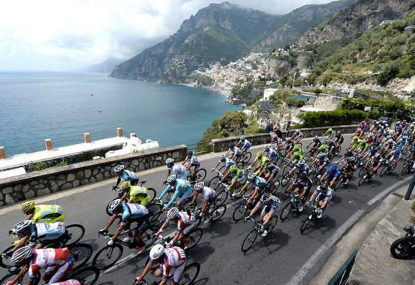'I've just won a stage of the Tour de France, mate!': Hindley grabs yellow jersey as Aussie blows Tour apart
Australia's Jai Hindley has said he is "lost for words" after a shock stage victory at the Tour de France earned him the leader's…

Danilo Di Luca was never one of my favourite riders, even before his part in the ‘Oil for Drugs’ in 2007.
That ‘scandal’ saw him suspended for three months and centred around Di Luca being recorded on a tapped phone planning to take EPO.
I went off him even more after he tested positive the CERA at the 2009 Giro, for which he received a two-year ban.
And then, as it if there wasn’t enough to dislike about ‘The Killer’, he goes and gets busted again at the 2013 Giro.
A race at which, it should be noted, he seemed to have rolled back the years with some powerful performances.
Giro director Michele Aquarone, on hearing of the positive, spoke words that echoed the view of many who watched the 37 year old ride.
“I’m not even surprised,” Acquarone said at the time. “We all knew.”
Brilliant. I wish more race directors were as forthcoming as Aquarone.
Di Luca is very soon to go before the Italian Olympic Committee CONI to face his judgment – one which could lead to a lifetime ban.
Is there any other possible outcome? He’ll be ok though, I’m sure. He’ll still have his fans and his sycophants, much like Levi Leipheimer in California.
Maybe Danilo and Levi could form a new MTB team, a discipline to which Leipheimer has returned to with gusto?
Perhaps Amgen could sponsor them?
What I’d like to know is this: how is it that a rider can receive one suspension, then another, and yet only receive a two-year ban for the second offence?
The message this sends out to cheats and potential dopers is that it’s worth the risk. These guys go off, bide their time, probably still dope, then come back at the top level with a chunky salary and form still intact.
That second suspension needs to be five years, or even six The current system is failing the sport, failing the fans and failing the clean riders, however many of them there may be.
As for a first time offence, I am inclined to distance myself from the camp that demands an immediate lifetime ban.
Sometimes, just sometimes, the rider can be guilty of nothing more than a stupid mistake – a cold medicine taken without reading the ingredients – or the victim of a spiteful rival or disgruntled coach, something a well known rider claimed privately after his recent positive.
Yes, these are also used as excuses but the system is not foolproof. An entire career ruined because of a mistake would be a tragedy.
So, how about extending the first ban to three years, including a financial punishment of one year’s salary, and demanding community service from the rider at a drug rehab unit? (The last point would be valuable perhaps for the symbolism alone).
On return the rider must ride one year at the very least at Pro Continental level at – there should be no immediate return to Pro Tour.
Second ban, well, if you’ve been an idiot again then more fool you. Chances are very high that if you’re busted twice then you’re beyond rehabilitation.
Five-year ban, criminal charges for theft and fraud, no return to pro cycling at any level above Continental and to ride on half-salary for two years, and with the pro teams’ mutual agreement, never to be employed in any capacity with a professional cycling team.
Then there’s no need for a ruling on three-time cheats like Di Luca, because they’d never be back in the sport after two positives.
It isn’t a lifetime ban, but any rider coming back to suffer the ‘ignominy’ of half wages and a life at a lower rank might just be worthy of some shreds of respect. And it would be quite amusing to boot.
A bit harsh? Tough times call for tough measures. Either we get serious on this, or we get out.